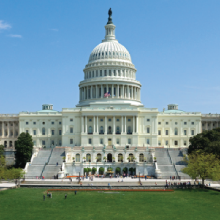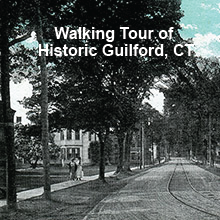The Cancer Community Needs to Fight Government Efforts to Limit Access to Life-Saving Drugs
by Staff on January 14, 2011All of us in the cancer community — those of us in the kidney cancer community, and others in the broad realm of cancer patients, caregivers and survivors in general — speak urgently of the need to find a cure for this disease. Of course, there is no one size fits all cure, as each form of cancer is different from the other. Nonetheless, all of us have either lost loved ones or friends or are fighting the disease ourselves. And yet, we find ourselves fighting not only the disease but, at the times, also fighting the government as we seek access to life-saving drugs.
We need to launch a campaign to demand that the government give equal treatment to research for cures to cancers like kidney cancer, or we risk remaining on the margins, hoping that some breakthrough in breast or lung or some other cancer might offer hope for us. Yet, the history of this disease is not encouraging that treatments for other cancers will apply to ours.
There has been a wave of articles, negative in tone, about the high costs of certain drugs that produce limited progression free survival medians. (You can read more about this in a US News & World Report article.) Officials at the Centers for Medicare and Medicaid are looking at revoking access to Provenge, a prostrate cancer drug that is “expensive” and offers “limited progression free survival,” according to them. When this was announced, the media wrote numerous articles about whether Provenge and similar drugs were really a good return on investment, as if cancer patients are widgets in a factory. Kidney cancer drugs like Sutent were roped into such stories, evidence of other drugs that, to hear the bureaucrats and media tell it, are expensive delusions that may give a patient a few months longer to live (which is inaccurate).
Another example is Avastin, a drug that has shown results for some (not all but some) patients with breast cancer. The FDA is seeking to revoke access to this drug. Avastin is not a drug for breast cancer patients only; it is also used by many kidney cancer patients. Might we be next to be denied access to this “costly” drug?
many kidney cancer patients. Might we be next to be denied access to this “costly” drug?
Put aside the human aspect of cancer patients wanting access to drugs that might offer hope. Consider the research implications. When researchers first started making minimal advances in systemic cures for metastatic cancer back in the 1940s, the results were minimal. Progression free survival medians were even more limited than those of the drugs listed above. These advances, however, no matter how limited, sparked more research, leading to more hope for a cure and to some of the advances in treatment that are common today — chemotherapy chief among them. Had these researchers simply given up during those early years, or been blocked by government bureaucrats citing limited survival rates, then the advances in treatment we have today would not exist.
The recent advances in drug therapy for kidney cancer treatment, no matter how limited, offer hope for new breakthroughs — but not if the government revokes access to these drugs, shutting down additional research. (What drug company will invest in new research if government agencies can revoke access to their drugs — for not particularly good reason other than cost?)
The media has been complicit, perpetuating the myth that new cancer-fighting drugs are the too-expensive luxuries for cancer patients who cannot accept their fate.
We need a campaign to fight back against this misinformation. Not just “awareness’ campaigns but an advocacy campaign to demand that our members of Congress, our elected representatives, block the misguided efforts by government agencies, responsible to no one, to block access to cancer drugs deemed too expensive.
If there is success in limiting access to these drugs, we’ll not only see patients die; we’ll see hope for new cures die as well. If the drug makers stop investing the billions necessary to produce new treatment breakthroughs, who will step in? The government? It is the government that is attempting to restrict access to proven drugs already.
Write your members of Congress and tell them that some 600,000 people die of cancer each year. Finding a cure should be a priority, not a talking point.




January 18, 2011 at 10:08 pm, UK blocks access to cancer drug for liver cancer patients | ACKC said:
[…] latest salvo in governments denying access to live-saving drugs for cancer patients comes from (of course) the United Kingdom. Here’s the headline in the UK Daily Express: […]